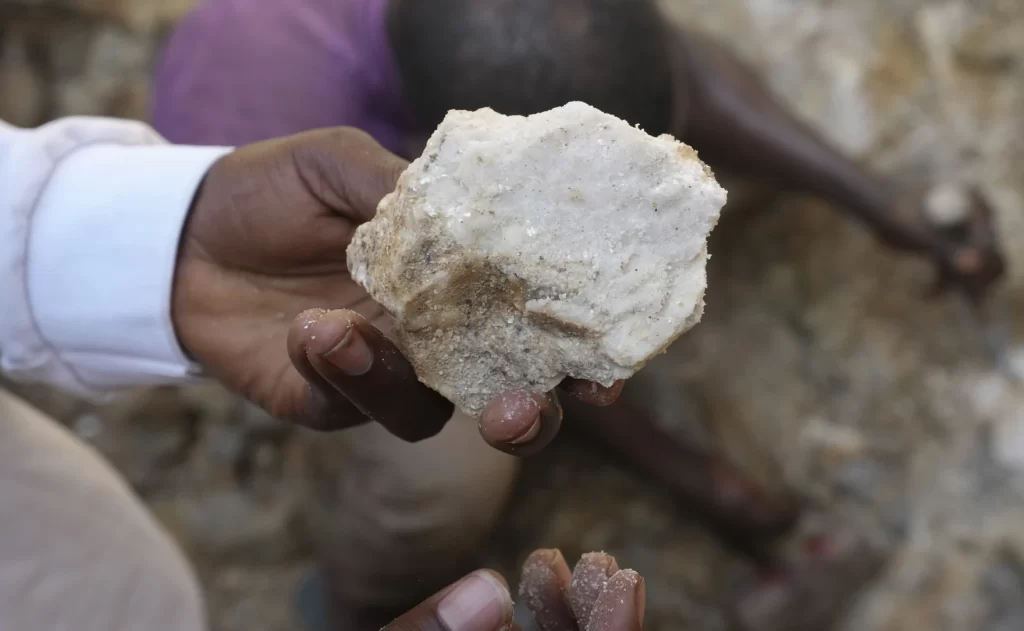
Nigeria is poised to launch two major lithium processing plants this year, marking a strategic shift from exporting raw minerals to developing domestic value chains through processing, manufacturing, and job creation.
Mining Minister Dele Alake announced that a $600 million lithium processing facility near the Kaduna-Niger border will be commissioned this quarter, while a $200 million refinery on the outskirts of Abuja is nearing completion.
He also revealed that two additional lithium plants are expected to be operational in Nasarawa State by the third quarter of 2025.
“We are now focused on turning our mineral wealth into domestic economic value—jobs, technology, and manufacturing,” Alake stated.
Over 80% of the funding for these projects comes from Chinese investors, including Jiuling Lithium Mining Company and Canmax Technologies, as confirmed by the governors of the host states.
The remaining ownership stakes belong to Nigerian firm Three Crown Mines.
Lithium is among the world’s most in-demand minerals due to its critical role in the production of electric vehicles, solar energy systems, and other green technologies.
A 2022 survey by the Nigerian Geological Survey Agency confirmed high-grade lithium deposits across at least six states, drawing increased interest from international investors.
Following this discovery, China’s Ming Xin Mineral Separation Nig Ltd. was selected by the Kaduna State government in 2023 to develop Nigeria’s first lithium-processing plant, with ambitions to eventually manufacture electric vehicle (EV) batteries locally.
The Nigerian government has emphasized its commitment to value addition. In 2022, it reportedly rejected a proposal from Tesla to purchase raw lithium, citing a policy shift that prioritizes domestic beneficiation over raw exports.
Ayodeji Adeyemi, special assistant to the Minister of Mines and Steel Development, told Rest of World that the Tesla proposal was declined because it conflicted with Nigeria’s new mining strategy.
Key reforms include:
A ban on the export of unprocessed minerals
Formalization of artisanal mining activities, which currently dominate lithium extraction
Creation of a state-owned mining company, allowing private investors to own up to 75% equity
Through these reforms and new industrial investments, Nigeria is positioning itself not just as a source of raw materials but as an emerging hub in the global clean energy supply chain.





